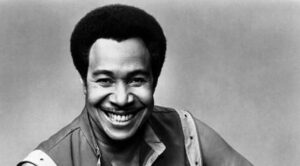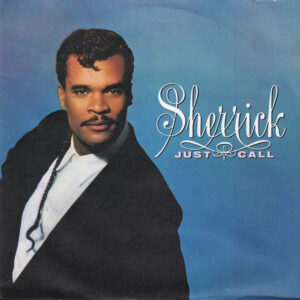During a musical age in which creativity is often forsaken for commerciality, “cover” albums sometimes serve as a quick go-to for artists who feel like playing it safe. But in the case of The Three Degrees, the trio’s astonishing 50-year legacy in the music business (they’re in The Guinness Book of World Records as the longest-running female group) renders the ladies among the most warranted to tackle the concept in a tasteful and satisfying way. Following a string of international classics throughout the 1960s and ‘70s—“When Will I See You Again,” “Woman in Love,” “Dirty Ol’ Man,” “Maybe,” “TSOP”—the group continued to record a colorful array of original material that found audiences in various locales, but didn’t quite reach the sales heights of earlier releases.
Thus, it makes sense that after two decades away from cutting albums (during which time they have toured globally each year), The Three Degrees have decided to honor their legacy by embarking on new versions of soulful classics fermented in their home turf of Philadelphia. It’s a full-circle sort of project, as the ladies give their treatment to nine songs created by legends Gamble and Huff and McFadden & Whitehead—both outfits having hit their stride concurrent to the Degrees’ own rise to stardom. While the group has had some member shuffling over the years and tried its hand at various adaptations of its own classic catalog, Strategy: Our Tribute to Philadelphia is an enjoyable listen that finds the gals injecting their distinctive vocal personalities into tunes associated primarily with male vocalists.
Strategy devises an ideal balance of uptempo romps and ballads, with longstanding members Valerie Holiday and Helen Scott, and recent recruit Freddie Pool, each exhibiting stylish phrasing and profound respect for melody and lyrical content. The funky title cut, first recorded in 1979 by Archie Bell & The Drells, serves as an engaging opener with a deep and sassy delivery of the verses and ad-libs by Holiday. On a slower note, she approaches Billy Paul’s timeless “Me & Mrs. Jones” with bluesy and gentle candor, making the newly titled “Me & Mr. Jones” a highlight of the session. With Yonrico Scott’s smoothly tempered drum work and Tom Grose’s sophisticated piano flourishings setting the backdrop, the rendition stands out from others with a special jazzy quality.
Another especially bright moment on Strategy is the revisiting of “Don’t Leave Me This Way,” a disco anthem most often associated with Thelma Houston but originally cut by Harold Melvin & The Blue Notes. Pool’s reading of the lovelorn composition strikes the perfect balance between vulnerability and passion, and the rhythm section’s groove is at once kinetic and understated—providing ample spotlight of David Gardner’s supple guitar work and the enticing backing harmonies. A “false” a cappella ending followed by the return of the instrumentation caps the remake off nicely. Pool also injects an assertive and festive energy into The Trammps’ “Disco Inferno.”
Rounding out Strategy are a comforting take on Lou Rawls’ “You’ll Never Find Another Love” and a true-to-form update of “T.S.O.P.,” the robust 1973 anthem concocted by MFSB with The Three Degrees on vocals—which served as the longest running theme song for TV’s Soul Train. These numbers side by side demonstrate the versatility and grace which the Degrees have continued to employ in their performances over the decades—distinguishing them from many girl groups which have come and gone in the time since. Recommended.
by Justin Kantor
Connect with Justin on Facebook










